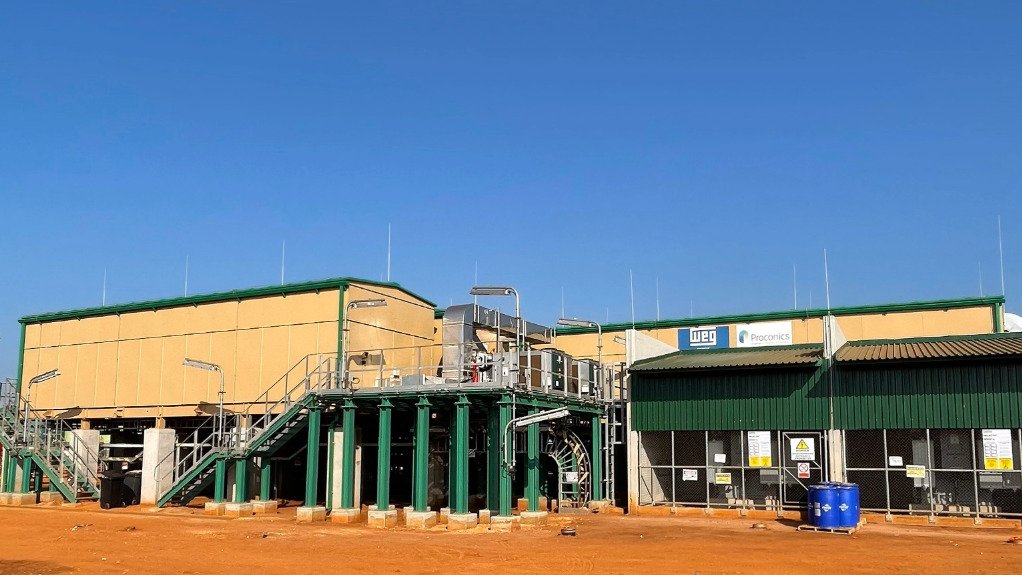

WEG Africa builds substation E-house facility for Sasol's Upstream PSA project in Moz
Electrical equipment manufacturer WEG Africa has completed a large substation E-house solution, which includes distribution transformers and a diesel generator set, for energy and chemicals company Sasol’s Upstream production sharing agreement (PSA) project, in Mozambique.
The E-house solution was procured by engineering, procurement and construction management contractor Wood, was designed and manufactured by WEG Africa and supplied in partnership with local engineering firm Proconics.
As the E-house solution will be in a region that has experienced hurricanes, it was designed to withstand harsh environmental conditions, as well as other risks on the site, says WEG Africa Oil and Gas business development sector specialist Lukas Barnard.
Special treatment of the steel was also necessary to ensure the high level of corrosion protection required. All related work was conducted in accordance with national standard SANS 12944 for C5M, or highly corrosive environments.
The outer walls of the substation E-house are constructed from 3CR12 stainless steel, with galvanised steel for outside staircases and walkways. Another design element is the structure's ability to resist seismic events, including ground-acceleration of up to 0.2 g.
The Sasol PSA project will produce 23-million gigajoules a year of gas, which will power the Temane thermal power plant that will generate 450 MW of electricity and deliver excess gas for export.
The project will also include a liquefied petroleum gas (LPG) facility that will produce 30 000 t/y, meeting 75% of Mozambique’s cooking gas demand, as well as producing light oil for export.
The substation package measures 45 m by 22 m and includes medium-voltage and low-voltage switchgear, a battery room, a local equipment room and a heating, ventilation and cooling system.
The E-house solution overcomes various challenges of building conventional electrical facilities on-site in countries with limited infrastructure. WEG Africa manufactured and pre-assembled the E-houses under controlled workshop conditions at its facility in Heidelberg, Gauteng, says Barnard.
“The whole package, with all the relevant equipment, could be transported to site. Even though the logistics were challenging, this method greatly reduced the complexity and timeline, owing to all the equipment already being installed and tested,” he adds.
The conducive workshop conditions for constructing the E-houses, and the ready access to the necessary expertise, facilitated strict adherence to WEG Africa’s manufacturing quality standards, which are aligned to international standards ISO 9001.
This also allowed for greater manufacturing efficiency, while reducing the number of people required on site, improving safety levels and minimising the risk of construction-related incidents.
“Our scope of supply was the ‘electrical heart’ of the project, as the electrical supply and control for the entire PSA plant come through the E-houses,” Barnard says.
The project combined the manufacturing capabilities of WEG Africa and the project management and design capabilities of Proconics, and the partnership can provide full turnkey solutions to the oil and gas industry, he adds.
“WEG Africa and Proconics, working closely with the contractor, ensured that all client expectations were met and the highest quality of workmanship delivered. The success of this project also sends a clear message that the necessary expertise and industrial capabilities are present in South Africa,” Barnard notes.




